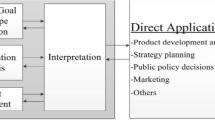Abstract
Many buses use cryogenic container to store the LNG as fuel. The heat insulated performance is an important parameter that reflected with daily evaporation rate or heat leakage of cryogenic container. In bus running process, the LNG container is affected by many factors and difficult to assess and analyze the heat insulated performance. In order to solve this problem, firstly, according to the LNG container heat leakage transfer process in bus running, the energy equations of the LNG were established. Secondly, the factors were analyzed that affected the heat insulated of the LNG cryogenic container. Then, the heat leakage was calculated depending on the test data of the LNG container in the bus running to estimate the heat insulated performance. At the same time, the LNG container heat insulated performance was also measured at the local inspection agency. We found that there were great differences between the two results, and the reasons for the great differences were further analyzed.
Similar content being viewed by others
Abbreviations
- C vl :
-
Specific heat capacity of liquid
- c w :
-
Specific heat capacity of gas
- E :
-
Internal energy of the LNG
- e v :
-
Internal energy of gas
- e l :
-
Internal energy of liquid
- h l :
-
Enthalpy of liquid
- L :
-
Latent heat
- L svap :
-
Latent heat at standard pressure
- M :
-
Liquid mass evaporating to gas in unit time
- M t :
-
Total vapor mass
- m :
-
Molar mass
- m l :
-
Liquid mass
- m v :
-
Gas mass
- m t :
-
Total mass
- m lout :
-
Liquid mass flowing out the LNG container
- p v :
-
Saturated vapor pressure
- Q vl :
-
Heat transferred from liquid to gas by interface
- Q wl :
-
Heat leakage absorbed by the liquid from wall
- Q wv :
-
Heat leakage absorbed by the gas from wall
- Q t :
-
Total heat
- q t :
-
Total heat leakage in minute
- R G :
-
Ideal gas constant
- T :
-
Liquid and gas temperature at saturated state
- V v :
-
Gas volume
- V l :
-
Liquid volume
- V g :
-
Vapor gas volume correspond the same heat leakage in standard method
- α :
-
Ratio of internal energy rise of liquid by vibration
- α o :
-
Daily evaporation rate
- β :
-
Ratio of internal energy rise of gas by vibration
- ρ v :
-
Gas density
- ρ l :
-
Liquid density
- ρ sg :
-
Gas density at standard pressure
- ρ sl :
-
Liquid density at standard pressure
References
M. Zhou, Y. Li and H. Tan, Experiment and theory of evaporation rate in cryogenic cylinder of LNG vehicle, Cryogenics, 170(4) (2009) 1–5.
BS ISO 21014, Cryogenic Vessels — Cryogenic Insulation Performance, BSI Publications, London, Unite Kingdom (2006).
J. Wang, Q. Ye, W. Qiu, X. Yi, J. Li, X. Yao and H. Xue, Welded Insulated Cylinders, Standards Press of China, Beijing, China (2009).
L. Wang, B. Han, Y. Ning, A. Yi, H. Zhang, Y. Tan, Q. Huang, F. Tian, J. Yang and J. Yin, Periodic Inspection and Elvaluation of Cryogenic Insulated Cylinders, Standards Press of China, Beijing, China (2017).
G. I. Saidal, A. I. Solodov and G. M. Kappel, Software development for processing test data on product loss by evaporation from cryogenic vessels, Chemical and Petroleum Engineering, 43(9) (2007) 529–532.
J. H. Lee, J. H. Yoon and S. P. Kim, Statistical experimental study for verifying thermal characteristics of insulated double pipe, Journal of Mechanical Science and Technology, 32(5) (2018) 2317–2325.
Q. Chen, J. Wegrzyn and V. Prasad, Analysis of temperature and pressure changes in liquefied natural gas (LNG) cryogenic tanks, Cryogenics, 44(10) (2004) 701–709.
M. Seo and S. Jeong, Analysis of self-pressurization phenomenon of cryogenic fluid storage tank with thermal diffusion model, Cryogenics, 50(9) (2010) 549–555.
W. Pinate, S. Rittidech and P. Meena, Critical heat flux of a two-phase closed thermosyphon with fins, Journal of Mechanical Science and Technology, 32(5) (2018) 2357–2364.
L. Wang, Y. Li, C. Li and Z. Zhao, CFD investigation of thermal and pressurization performance in LH2 tank during discharge, Cryogenics, 57 (2013) 63–73.
Z. Li, L. Xu, H. Sun, Y. Xiao and J. Zhang, Investigation on performances of non-loss storage for cryogenic liquefied gas, Cryogenics, 44 (2004) 357–362.
J. I. Hochstein, H. C. Ji and J. C. Aydelott, Prediction of self-pressurization rate of cryogenic propellant tankage, Journal of Propulsion and Power, 6(1) (1990) 11–17.
R. I. Zhukoca, E. V. Onosovskii and M. V. Matyukhina, Vibroportection as a method of reducing transport losses of cryogenic, Chemical and Petroleum Engineering, 2 (1989) 86–90.
Y. Huang and G. Chen, Thermo Physical of Cryogenic Fluid, National Defend Industry Press, Beijing, China (2014).
Author information
Authors and Affiliations
Corresponding author
Additional information
Recommended by Editor Yong Tae Kang
Zhengqing Li is a Ph.D. student in Department of Cryogenics of Lanzhou Institute of Physics in China. He received the B.S. degree in China Acadey of Space Technology (2016). His research interests include cryogenic liquid test, cryogenic storage, heat transfer and heat leakage test.
Xiaojin Li is a Principal Research in Lanzhou Institute of Physics. He received his B.S. (2009), M.S. (2012) from Northeast University in China. His research interests include thermal model analysis, cryogenic test, computational mechanic and enhance heat transfer.
Rights and permissions
About this article
Cite this article
Li, Zq., Li, Xj. Bus LNG container heat insulated performance estimate. J Mech Sci Technol 34, 3373–3377 (2020). https://doi.org/10.1007/s12206-020-0730-2
Received:
Revised:
Accepted:
Published:
Issue Date:
DOI: https://doi.org/10.1007/s12206-020-0730-2




